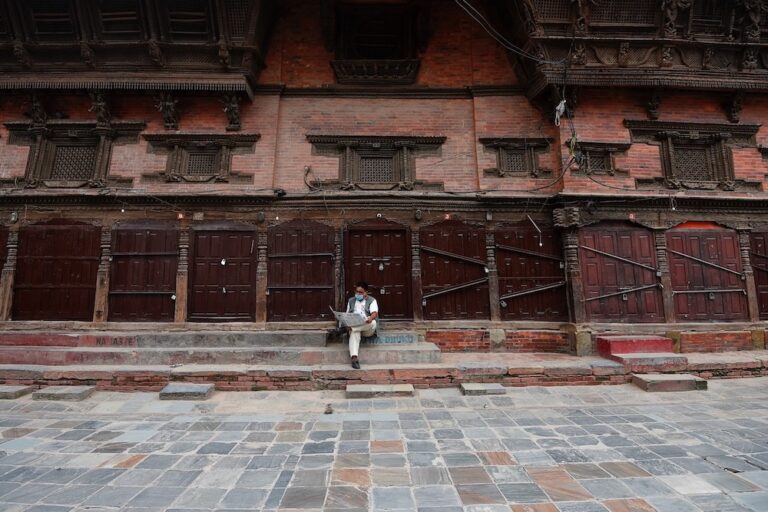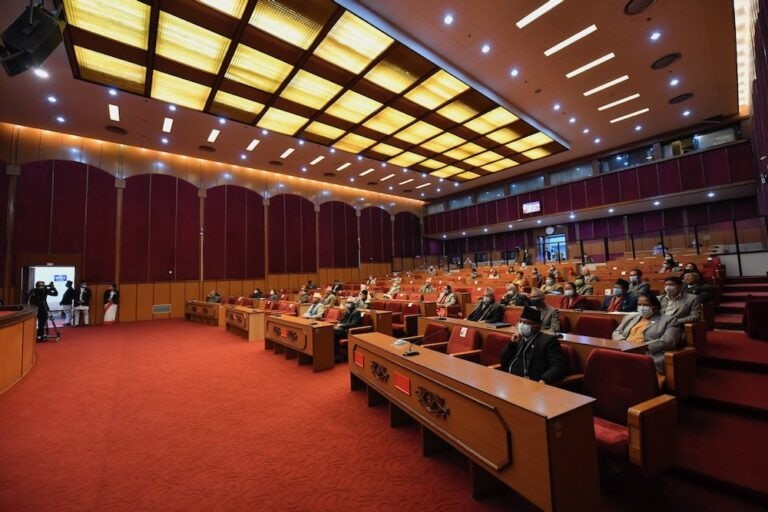Freedom Forum recorded an upsurge in press freedom violations in Nepal in the past year, affecting nearly 300 journalists, says the group in a report issued on World Press Freedom Day.
Compared to the last year, this year (1 May 2012 – 30 April 2013) witnessed an upsurge in press freedom violations and incidents against freedom of expression. Freedom Forum has recorded a total of 131 press freedom violations during this monitoring period. Nearly 300 journalists were impacted by these incidents.
As in the past, journalists and media outlets were at the receiving end vis-a-vis the political turmoil. Significant this time was a tumultuous beginning (May 2012) and a similar situation at the beginning of the New Year (January 2013) for Nepali media. Broadly speaking, these two time frames – around the eve of the dissolution of the Constituent Assembly (27 May 2012) and the arrest of the person accused of murdering journalist Dekendra Thapa (January 2013) – were dominant in the media landscape.
The ruling Unified Communist Party of Nepal (Maoist) took centre stage by suppressing citizens’ right to information and freedom of expression, thereby befouling the free and fair atmosphere necessary for journalists to report on the news.
In different regions, with the misuse of political power, media persons were badly assaulted by the Maoist party cadres, and suffered serious injuries.
Whether with a lure by providing assistance to media persons and media outlets and associations loyal to the ruling parties, or trying to revise media policy, or by voicing strong objection to media reports, the government led by the UCPN-Maoist made the utmost efforts to control the media.
Besides political parties, security persons, government officials, businessmen, ethnic communities and leaders, cine artists, unknown gangs, and others intimidated the Nepali media with frequent attacks, threats, death threats, manhandling, vandalism, and the torching of newspapers.
Some Important Incidents of This Year:
- A. Unprecedented Attacks on Media: In the two weeks from 8 to 24 May 2012, Nepali media faced unprecedented attacks. During the two weeks, a total of 88 press violations occurred in the country. This was related to the eve of the dissolution of the Constituent Assembly. 20-22 May were really black days for the media. Journalists received a flurry of threats and attacks during this time. Two journalists were severely injured during the demonstrations of different ethnic groups and associations organized in this period in the capital city.
- B. Mass Displacement of Journalists: On 24 January 2013, as many as 22 journalists left Dailekh, a far western district, for Surkhet, reasoning they were facing constant threats to their lives by the Maoist party cadres after they reported on the investigation into the murderers of local journalist Dekendra Thapa.
- C. Disappearance, whereabouts still unknown: Madan Poudel, a radio journalist from Kanchanjunga, a mountainous district in the northeast of Nepal, has been missing since 16 September 2012 while attending a program for reporting. The journalist’s whereabouts are still unknown.
- D. Maoist Party Cadres Assault Journalists before PM: Cadres of the ruling UCPN-Maoist assaulted a dozen journalists at a program attended by party Vice-Chairman and then Prime Minister Baburam Bhattarai in Kavre, a neighbouring district of the capital city, on 28 January 2013.
Press Freedom Violations during the Year (May 2012-April 2013)
Total Press Freedom Violations = 131
Number of Journalists Affected = 300
- E. Impunity Watch – Welcome deeds: The punishments meted out as per the law against perpetrators are welcomed by the Nepali media. According to the monitoring over this past year, some perpetrators involved in serious violations of press freedom – killing journalists – were brought to book and awarded imprisonment.
- i. On 22 April 2013, the District Court in Morang sentenced Manoj Rai to five years in prison while Rohit Koirala was sentenced to six months for assaulting Khilnath Dhakal, a reporter with the Nagarik daily, from Biratnagar. The duo had mercilessly attacked Dhakal on 5 June 2011, over a news report by him.
- ii. Similarly, Jhapa District Court on 25 February 2013 delivered a verdict awarding life imprisonment with confiscation of all properties to Yuvraj Giri, the main accused behind the murder of journalist Yadav Poudel, reporter with the Rajdhani daily and Avenues Television. Other accomplices, such as Phul Maya Karki (Manju) were slapped with a three-year imprisonment while her husband Somnath Dhakal was sentenced to one year and Madan Rai to six months.
- iii. Finally, the district attorney of Dailekha on 28 January 2013 filed a murder case against nine district cadres and leaders of the Maoist parties (ruling UCPN-Maoist, and breakaway faction CPN-Maoist) in the district court of Dailekh following due investigation and establishing proof of their involvement in the murder of journalist Dekendra Thapa. Those who face legal action are: Lachhiram Ghartimagar, 45, of Dwari-1, Nirak Bahadur Ghartimagar, 41, of Baluwatar-9, Bir Bahadur KC, 42, of Baluwatar-4, Hari Lal Punmagar, 49, of Dwari-3, Jay Bahadur Shahi of Raniban-1, Bam Bahadur Khadka Arun and Keshav Khadka of Chhiudipusakot-1, Bam Bahadur Khadka Mukti of Katti-1 and Baktiram Lamichhane of Dwari-1.
In addition to this, the government led by the Maoist party frequently made attempts to suppress freedom of expression sometimes by appointing party favourites and sometimes by appointing an ineligible person to various information and media related bodies.
No new policies in favour of press freedom were introduced this year.
About the new trends this year in Nepali media, the emergence of associations and groups advocating merely for some indigenous people or a particular ethnic community was really threatening to media freedom. It was witnessed on the eve of the dissolution of the CA. Next, even film artists have carried out some intimidation against the media. Cinema, despite being one of the mediums of free expression, was the source of hostility against another medium of expression. The mass displacement of journalists was another new trend.
Despite this, some developments on impunity in relation to journalism/press freedom, such as the imprisonment of the murderers of journalist Dekendra Thapa after a long time, can be taken as positive indicators.
All in all, the bigger political crisis put media freedom in a corner. The rising number of press freedom violations (there were only 96 incidents of press freedom violations during the same monitoring period last year) is the candid evidence of this.
Analyzing these incidents and events over this monitoring period, it is fair to say the situation of press freedom was dissatisfying. So, the time has come to make further efforts to protect and promote press freedom in order to ensure that culture and democratic values are safeguarded in the country.



